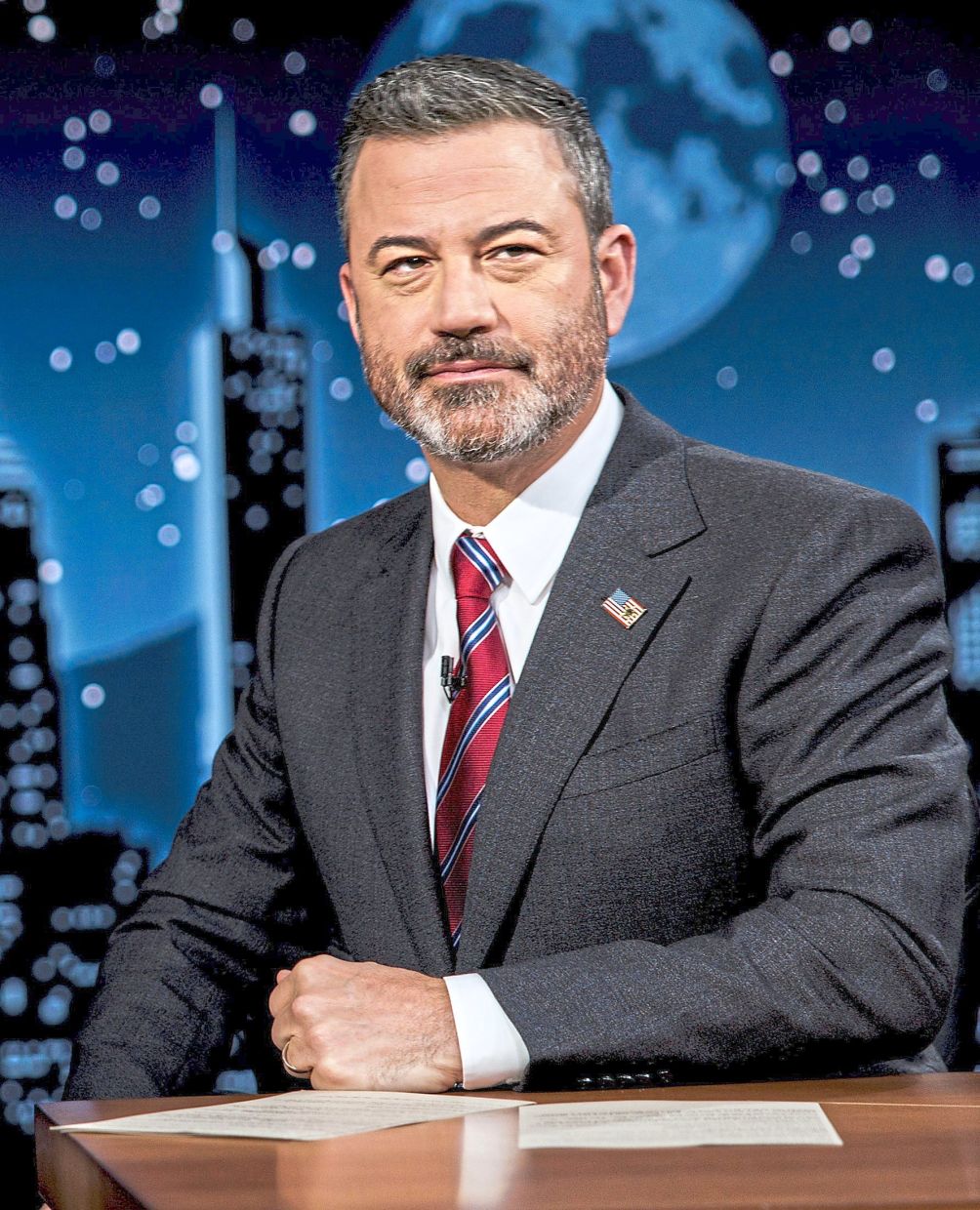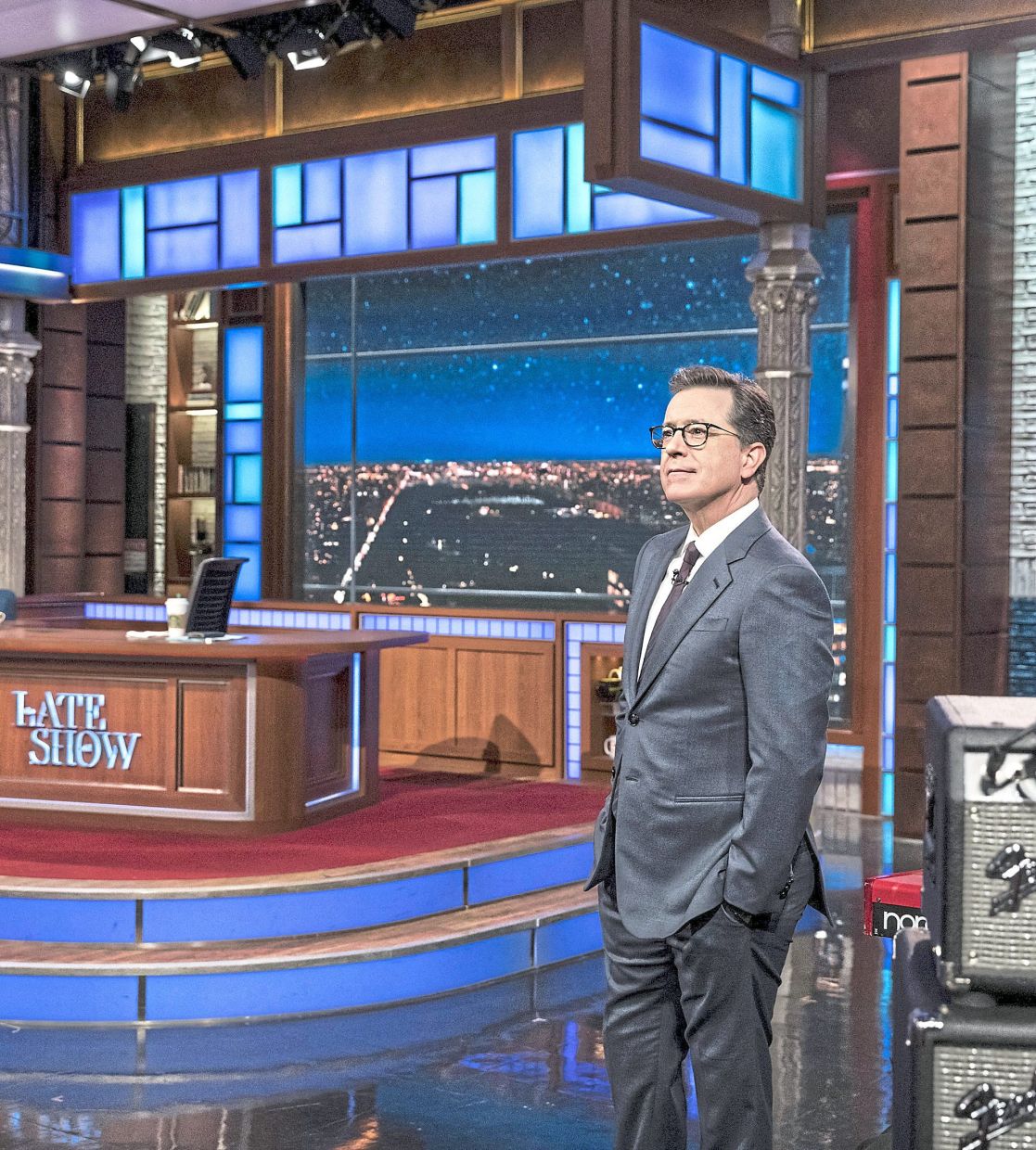LATE-NIGHT talk shows weren’t always the tip of the spear.
For most of its history, this distinctly American genre introduced audiences to polite Midwestern men in suits who lulled viewers to sleep with apolitical punchlines and celebrity chat. But the joke tellers who have emerged as the highest-profile critics of US President Donald Trump‘s second administration – and the ones most under attack – are that supposedly endangered species: the network late-night hosts. How did these establishment figures become so political?
Conservatives have argued that late-night network hosts became cocooned in their own liberal bubble, their shift to more overt critiques of Trump motivated by politics, not commercial interests. Others point to Trump, who has the Midas touch for politicising everything he touches. Neither explanation is entirely right.
To understand how network late-night hosts became such critics of Trump, you have to take the long view, because their increasingly political commentary preceded the current president and happened gradually.
You can trace the evolution quite neatly over the career of Jimmy Kimmel, who has moved from the frat-boy humour of The Man Show in the early 2000s to the unlikely face of the resistance, earnestly championing free speech and journalistic independence in his return to television last Tuesday night after Disney had suspended his ABC show, Jimmy Kimmel Live! under pressure from the Trump administration.
The most important influence on Kimmel has always been his childhood hero, David Letterman, and some of his actions now reflect the knee-jerk irreverence towards authority that Late Night With David Letterman regularly displayed in the 1980s.
But the political shift of late-night television – and Kimmel – really began with the influential programme that followed The Man Show on Comedy Central: The Daily Show With Jon Stewart.
Of course, there had been popular political comedy on late night before Stewart but The Daily Show’s success gave birth to an entirely new genre of righteous comedy. He didn’t just comment on the news. For many, he provided a substitute news source.
Stewart relentlessly mocked the George W. Bush administration during the run-up to the war in Iraq in 2003, but he was equally biting and persistent ridiculing the superficiality of media coverage. There’s a direct line from Stewart’s success in bonding with his viewers by contemptuously mocking the political media to what Joe Rogan does on his podcast before entertaining alternate theories on vaccines or World War II.
Stewart cultivated a staff of correspondents (John Oliver, Samantha Bee, Stephen Colbert, among others) that became a major source of future talk-show hosts.
But the main reason that Stewart changed late night is simply that his show drew audiences, especially young ones. You started to see hosts like Letterman become more outspoken in their politics, not just battling with a vice-presidential candidate, Sarah Palin, but also regularly inviting an unfiltered businessman named Donald Trump to spout off about the news of the day.
When Letterman retired, CBS replaced him with Colbert, who got off to a rocky start but found his footing after the 2016 election once he began delivering more passionate commentary on the news.
He eventually did what Letterman could not, surpass The Tonight Show in the ratings year after year. Being the ratings leader did not, however, keep Colbert’s show from losing money or getting cancelled.
Putting aside the political considerations, the economic model for talk shows collapsed for the same reason that print media’s did: The Internet. Ad rates plummeted. Social media made topical jokes before late-night shows did. And the growing fragmentation of the culture changed the calculus of what would resonate. Johnny Carson appealed to a vast national audience in part because viewers had little else to watch. Now everyone has broken up into cultural silos and they don’t share the same reference points. One of the few subjects that people of wildly diverse ages and backgrounds have a reliably common interest in is, as it happens, presidential politics.
This is the world Kimmel competes in. The best joke he made the last time he hosted the Oscars was an improvised response to an insult Trump posted on social media. One of Kimmel’s most gripping talk-show monologues was a personal argument about healthcare that he delivered after his son underwent emergency open-heart surgery. These moments resonate because they are genuine; while political combat has always drawn eyeballs, they also emerge in a specific context.
The era of topical comedy aiming for a broad monoculture is gone. If you dislike liberals or the mainstream media, there’s no shortage of performers who mix conservative commentary with mockery, from Fox News to conservative podcasters to countless accounts on the social platform X.
And critics who have been incessantly saying that late night no longer matters are going to need to catch up. The government doesn’t go after entertainers because they are irrelevant. Right now, whatever you think of Kimmel’s politics or humour, there’s no denying that his monologue on Tuesday night was the must-see comedy event of the year.
Let’s remember that Trump has appeared on network talk shows for decades. He loved being a guest. So perhaps it makes a kind of paradoxical sense that only he could even have a chance at doing the impossible: Make late-night great again. — ©2025 The New York Times Company






